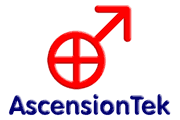Water and Wastewater
Another key ambition for the ecovillage is water independence. The ecovillage will produce ample water for its needs, including high quality drinking water as well as water for gardening and other uses.
Rainwater Harvesting
Our primary source of water will be rainwater harvesting. Each home, as well as the community centre, will have water tanks for storage of up to 3 months worth of water. The Samford area has been heavily drought affected, so we cannot rely on consistent rainfall throughout the year.
Gutter mesh and first flush diverters will be installed on all buildings where rainwater is harvested, in order to keep leaves, twigs, frogs, mosquitos and other muck out of the tanks.
Water Purification
All drinking water on the site will be purified to a high standard, for optimal health. Homes will have a carbon filter, such as a Pure Water Systems "whole of house" filter, that removes sediments, chlorine and other substances from the whole water supply to the house. This will be supplemented by an under-sink reverse osmosis filter in the kitchen that further purifies water for drinking and cooking.
We may also include one of the more modern technologies that affect the electromagnetic frequencies of water, e.g. Grander Water, in order to improve water quality in the ecovillage. There are several options in this emerging technology, which need to be evaluated for price and effect.
Hot Water Systems
Quantum heat pump hot water systems will be used in each home in the ecovillage, as these are currently the most energy-efficient method of heating water available on the market. The government also provides a rebate for each of these units installed.
Wastewater Re-use
There are various options for grey and black water re-use, which are still being investigated.
The most water-efficient solution will use dry composting toilets (e.g. Rota-Loo) across the site to reduce black water, in conjunction with Perpetual Water - Home units that recycle grey water to tertiary levels. This is the more expensive setup (around $16,000 per home), but will provide a supply of good quality water that can be used on either above-ground or sub-surface irrigation, or for washing cars or clothes. In this setup, the only lost water will be from the kitchen sink. However, water for sub-surface irrigation does not need to be treated to tertiary levels, so this system may simply be overkill.
An alternative option is to use the Biolytix BF6 wastewater treatment systems, an award-winning alternative to septic systems. These systems treat grey and black water to secondary levels, which means the recycled water can be used on sub-surface irrigation only. This may be acceptable since we will be using sub-surface irrigation, and waterless car washing systems such as NoWet. The benefits of this system is that it will be much cheaper, and it will recycle water from the kitchen. It also means that flushing toilets becomes a much more acceptable option, since this black water would be recycled. A Biolytix solution has recently been installed in SomerVille Ecovillage. One disadvantage of this option is that the recycled grey water cannot be stored, but is flushed to the gardens daily.
Sub-surface Irrigation
Large areas of the site will be allocated for permaculture gardens that will provide the ecovillage with its food supply (see the Food page). Sub-surface irrigation will be used in all these areas, which significantly reduces water use by delivering water directly to the plants' roots. This approach significantly mitigates water run-off, deep leaching, water loss to evaporation, and the creation of ponds or channels.



